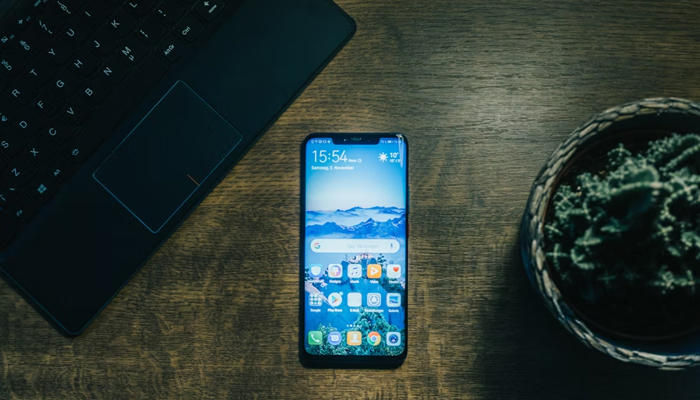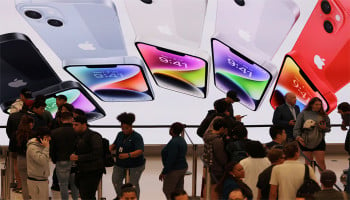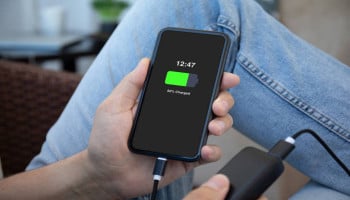
Google, a tech giant, went on a spree in Mountain View, California, unveiling a breakthrough in AI, adjustments to its products and services, and, of course, more information about Android 15.
The latest version of the most popular mobile operating system will be out later this year, and people will learn more about its capabilities at the company's I/O developer conference.
Google is continuing to improve 'Material You' and the mature Android platform, along with assisting it in adapting to new form factors such as foldable. It has also chosen a vehemently privacy-focused stance, which is expected to better compete with all of Apple's privacy features in iOS.
Moreover, on top of a slew of new AI capabilities powered by Gemini, along with features spotted in early system betas, Google has confirmed eight new features for Android 15.
'Private Space'
Android phones have long features that allow users to lock specific applications with their fingerprint or passcode, but Google is now integrating similar functionality directly into Android through 'Private Space'.
The function allows the users to hide apps that they don't want inquisitive eyes to view or use, such as banking or health apps. It will then separate the data and alerts from those applications, ensuring that they are genuinely concealed, and the users may even conceal the presence of their Private Space completely.
The function uses the user’s fingerprint for protection, but they can also set up a custom lock if users want to make it even tougher to hack.
Read more: Android 15 update features magnification gesture for effortless zooming in
A better experience on bigger screens
Android 15 should make it easier for developers to adapt their programmes to bigger displays available on tablets and foldable devices, owing to the new 'Compose' AI flexible layout frameworks.
In addition, Google claimed that utilising 'Compose' would make it easier for developers to ensure that their apps' user interfaces adapt properly across window sizes, screens, orientations, and other factors.
The API includes composables, which allow UI components to adapt to the display they're on rather than merely stretching or shrinking based on screen size. The API makes it easy to hide items, realign them, utilise pane extensions to hide or reveal certain areas of an app, and so on.
Moreover, a tech giant is providing developers with the tools they need to make utilising a keyboard and mouse more user-friendly in third-party apps, along with ensuring that games adapt well to whatever screen size they're on.
This is a major pain point for foldable phone users since applications struggle to understand how to expand their information, so perhaps, these under-the-hood tweaks will help.
More 'stuff' in your Google Wallet
The users can now digitise everything and upload it to their Google Wallet. The firm is introducing the opportunity to upload a digital version of any pass with text, allowing users to load their gym membership card, library card, concert ticket, and more directly into their phone.
Read more: Android 15 might enable users to force apps into dark mode
Thieves will have difficulty taking your phone
'Theft Detection Lock' is one of the best features that takes advantage of Google's AI capabilities. If someone steals your Android smartphone and attempts to flee by running, biking, or driving away, your phone will detect the action and lock the screen.
It will also automatically lock if it detects suspicious activity, such as repeated attempts to disconnect your phone or unsuccessful login attempts.
While 'Theft Detection Lock' will be accessible on phones running Android 10 and earlier, factory reset protection will be limited to Android 15.
Moreover, if a criminal attempts to reset your stolen phone, the newest feature stops them from doing so without your Google account credentials. It's similar to Apple's Find My iPhone function, which shuts down iPhones when they're reset. This renders your Android phone worthless to anyone who does not have your Google account login details, perhaps discouraging theft.
Read more: Android 15 introduces auto screen-off for inactive use
More secure phone calls
Android 15 is also designed to combat spammers who use cell-site simulators and fraudulent text messages to scam users by adding notifications when their cellular network connection is unencrypted. This will come in handy if the users are specifically targeted by criminals who want to intercept their cell signal.
Google is also introducing 'Identifier Disclosure Transparency', which may alert at-risk users such as journalists when their phone is being tapped by a fake cellular base station or surveillance tool.
Both of these capabilities will require OEM support, but Google expects a large number of phone makers to do so.
Slight performance bumps
Android 15 will enable devices with bigger 16KB pages, which will lead to some speed gains. This should shorten app startup times, increase battery economy, allow you to access your camera app faster, and turn on your phone faster.
This depends on the phone the users have and its specifications, but it's encouraging to see Google working on performance improvements.
AR in Google Maps
Google Maps will soon be able to show augmented reality material on users’s phones, allowing them to learn more about the location the users visit. It's still in the early phases, however, Google claims AR experiences for Singapore and Paris will be available initially.
Read more: Android 15 — A privacy and security-focused update for Android users
Moreover, the functionality is an outgrowth of Google's extended reality (XR) platform, which it is developing with Qualcomm for the Android ecosystem, so expect to see more AR in Maps over time.
Integration with third-party trackers in 'Find My Device'
Google is enhancing 'Find My Device' with the ability to monitor tracker tags from businesses such as Chipolo and Pebblebee. This means users will be able to discover their phones, earphones, baggage, backpacks, and other items from a single location, akin to Apple's Discover My Network on its platforms.
Google claims Android 15 will attain platform stability in June or July, with a public release following some time later. Android 14 was not released until August 2023, thus it is reasonable to predict that Android 15's timetable will be similar.














